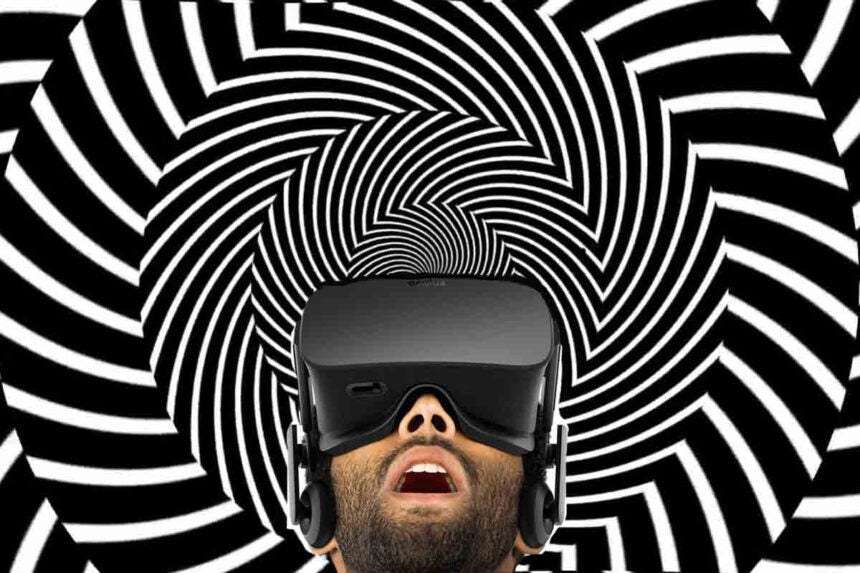
Motion Sickness: Can the right music prevent VR nausea?
The right soundtrack can prevent VR nausea. Researchers have tested how music affects subjects during VR roller coaster rides.
Motion sickness can occur when the eye perceives something different than the balance system in the inner ear. For example, during a virtual roller coaster ride, the eye sees movement that the inner ear does not feel. This creates a conflict in the brain that can cause symptoms such as dizziness, nausea, and headaches. For many people, this can cloud the virtual reality experience.
In a new study, researchers at the University of Edinburgh have found that upbeat or soothing music can significantly reduce the symptoms of motion sickness, while also having a positive impact on cognitive abilities and performance.
Three VR roller coaster rides, please
Thirty-nine people between the ages of 22 and 36 participated in the study. The researchers showed them three roller coaster rides in VR that were specifically designed to induce motion sickness. During two of the three rides, the subjects listened to electronic instrumental music that had been rated as happy or calming in a previous study. The third ride featured no background noise.
The rides were performed in random order. After each ride, the participants rated the intensity of their symptoms and completed tests to measure memory and reaction time. The researchers also examined the participants’ eyes.
They focused on reading speed and pupil diameter. Eye tracking tests were also performed to measure reading speed and pupil size. To be able to compare the results, the researchers had the participants perform the same tests before the trips.
Type of music influences effect
The researchers found that upbeat music reduced the overall intensity of symptoms, while calming music mainly alleviated the subjects’ nausea. From the results, the research team concluded that music minimises negative symptoms by providing distraction and evoking positive emotions.
In addition, motion sickness was associated with a temporary reduction in verbal working memory, a decrease in pupil size, and a slowing of reaction time and reading speed. Subjects with prior VR gaming experience also showed milder symptoms of motion sickness. This effect was independent of gender.
Better VR feeling with suitable music
According to the researchers, the right choice of soundtrack in VR games could therefore help sensitive people to use VR more frequently and effectively without suffering negative effects on well-being and performance.
In addition to music, there are many other approaches in the VR industry to prevent motion sickness. Ginger VR, for example, is an anti-VR nausea toolkit that works with visual tricks. OVR Locomotion Effect also aims to help sufferers by creating artificial tunnel vision.
Credit: https://mixed-news.com/en/motion-sickness-can-the-right-music-prevent-vr-nausea/

